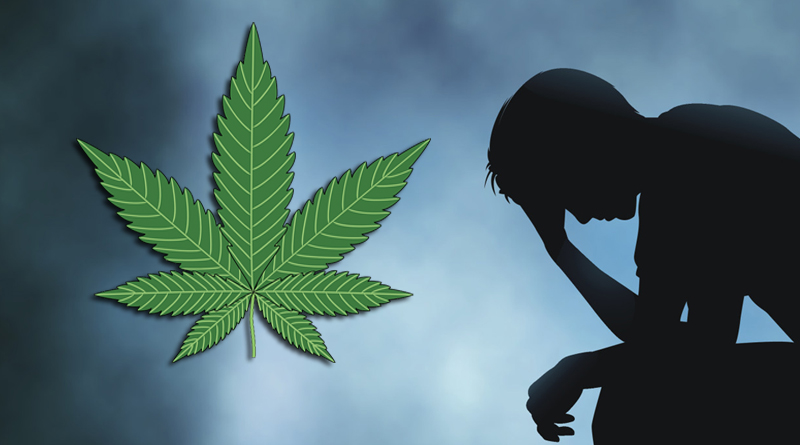Study: Medicinal cannabis may help relieve depression
A new study, published in Frontiers in Psychiatry this past September hypothesized that medical cannabis may provide symptomatic relief for people who suffer from depression and anxiety.
The study’s authors claim that medicinal-grade cannabis harbors potential to amplify quality of life among those who struggle with depressive episodes.
In order to reach their conclusions, a group of scientists from Johns Hopkins University, University at Buffalo and various other medicinal divisions carried out an observational study that stretched over a four-year period.
The scientific research team monitored the effects of using pharmaceutical-grade cannabis and assessed firsthand experiences from consumers.
All in all, the “use of CBD-dominant cannabis products is associated with reduced depression in a sample of mostly female, Caucasian adults,” wrote the study authors.
368 cannabis-consuming people partook in study on cannabis for depression
Fewer than 400 people took part in the study on cannabis for depression. To be specific, a total of 368 people who had been diagnosed with depression agreed to test the effects of cannabis on this mental health disorder
In addition to the 368 study subjects, 170 people who were not clinically depressed also partook in the research effort. This particular group of people was deemed to be the “control group.”
Those who were clinically diagnosed as depressed reported suffering from either of the following mental health conditions:
- Agoraphobia
- Dysthymia
- Generalized anxiety disorder
- Major depressive disorder
- Postpartum depression
- Premenstrual dysphoric disorder
- Panic disorder
- Social anxiety disorder
- Seasonal affective disorder (SAD)
Based on the results of a baseline survey carried out by the research team, lower rates of depression were reported by the former group, in addition to reduced pain levels, improved quality of life and a more peaceful night’s sleep.
One of the most important takeaways from the study was that participants who started using medical cannabis during the study’s follow-up period experienced less depression and anxiety; as opposed to those who did not consume the plant at all.
Researchers claim that the positive effects of cannabis consumption among depressed patients was most noticeable when the non-psychoactive compound CBD (cannabidiol), rather than the psychoactive cannabinoid THC (tetrahydrocannabinol), was consumed.
Majority of cannabis consumers reported no adverse side effects from plant exposure
One of the most positive findings from this study was that most cannabis consumers experienced relief from depression without experiencing any unwanted side effects.
Nonetheless, a minor percentage claimed that they felt concerned about the plant’s legal and social stigma. Moreover, a small percentage of study subjects reported experiencing negative respiratory effects from inhaling/smoking cannabis, as well as feelings of intoxication.
Furthermore, a total of 10 participants reported exaggerated anxiety symptoms post-consumption. Plus, one study subject noted that the green plant actually amplified the symptoms of depression.
However, researchers say that the psychotropic compound THC is usually the underlying cause of cannabis’ negative side effects. With that being said, the researchers lightly touched upon the benefits of THC’s non-psychotropic cousin cannabinoid CBD.
“CBD, a phytocannabinoid that lacks the abuse liability of THC, has potential for therapeutic use in psychiatry,” wrote the study authors, who set their sights on psychiatric populations for their investigation.
The research team said that their purpose was to build upon previous findings by narrowing their focus to people who had reported suffering from anxiety and/or depression
“Future placebo-controlled studies are necessary to replicate these findings and to determine the route of administration, dose, and product formulation characteristics to optimize clinical outcomes,” they concluded.








